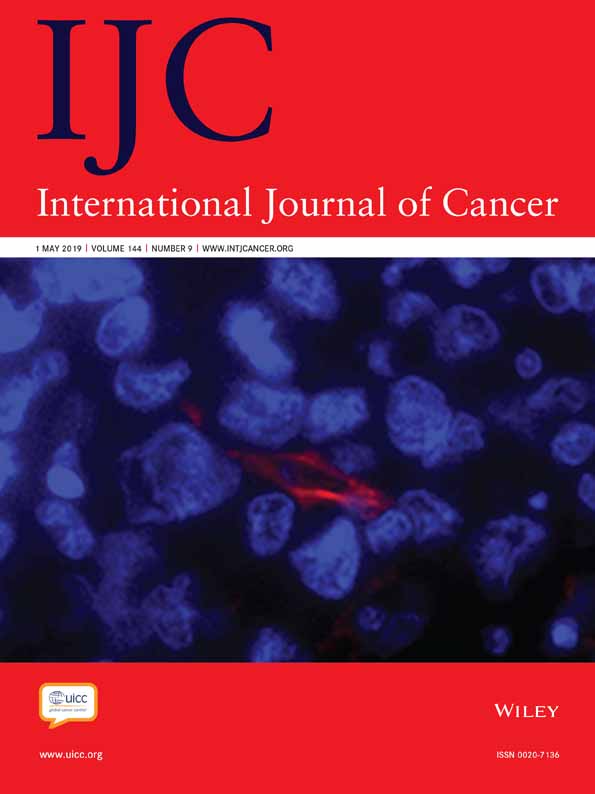The association between markers of tumour cell metabolism, the tumour microenvironment and outcomes in patients with colorectal cancer
Abstract
Tumour cell anaerobic metabolism has been reported to be a prognostic factor in colorectal cancer. The present study investigated the association between monocarboxylate transporter (MCT) 1, MCT 2, lactate dehydrogenase (LDH) 1 and LDH 5, the tumour microenvironment, and outcome in patients with colorectal cancer. A cohort of 150 patients with stage I-III CRC were utilised to assess tumour cell expression of MCT-1, MCT-2, LDH-1 and LDH-5 by immunohistochemistry. Expression levels were dichotomised and associations with tumour factors, the tumour microenvironment and survival analysed. Nuclear LDH-5 associates with poor prognosis (HR 1.68 95% CI 0.99–2.84, p = 0.050) and trends toward increased tumour stroma percentage (TSP, p = 0.125). Cytoplasmic MCT-2 also trends toward increased TSP (p = 0.081). When combined into a single score; nuclear LDH-5 + TSP significantly associated with decreased survival independent of stage (HR 2.61 95% CI 1.27–5.35, p = 0.009), increased tumour budding (p = 0.002) and decreased stromal T-lymphocytes (p = 0.014). Similarly, cytoplasmic MCT-2 + TSP significantly associated with decreased survival (HR 2.32 95% CI 1.31–4.11, p = 0.003), decreased necrosis (p = 0.039), and increased tumour budding (p = 0.004). The present study reports that the combination of TSP and nuclear LDH-5 was significantly associated with survival, increased tumour budding, and decreased stromal T-lymphocytes. This supports the hypothesis that increased stromal invasion promotes tumour progression via modulation of tumour metabolism. Moreover, MCT-2 and LDH-5 may provide promising therapeutic targets for patients with stromal-rich CRC.
Abstract
What's new?
One key theory for how tumor stroma facilitates tumor progression is the production of stroma factors influencing tumor metabolism. Here, the authors tested associations between markers of tumor metabolism and stroma infiltrate in colorectal cancer, which has tumor cell anaerobic metabolism as a prognostic factor. The combination of stromal infiltrate and tumor cell expression of nuclear LDH-5 was significantly associated with survival, increased tumor budding, and decreased stromal T-lymphocytes. The findings support the hypothesis that increased stromal invasion promotes tumor progression via modulation of tumor metabolism and highlights LDH-5 as a promising therapeutic target for patients with stromal-rich colorectal cancer.




